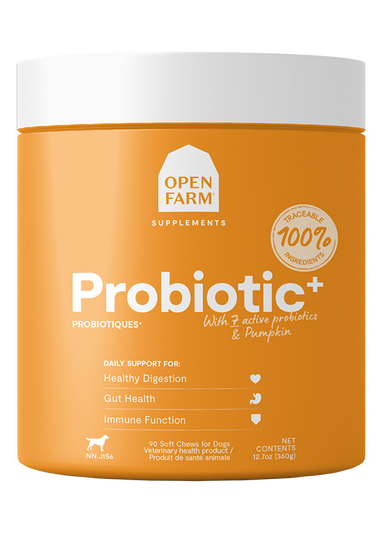When it comes to dogs and chocolate, the combination can be an alarming one. Chocolate contains theobromine and caffeine, both of which are toxic to dogs. If you find yourself in the stressful situation of “oh-no my dog ate chocolate, what now?” it’s important to act quickly. Let’s explore how to respond and support your pup’s digestive health after eating chocolate.
Identifying the Risks
Theobromine is the primary reason for chocolate poisoning in dogs. Dogs metabolize theobromine much more slowly than humans, allowing it to build up to toxic levels. The severity of chocolate toxicity in dogs depends on factors such as the type of chocolate consumed, the amount ingested, and the size of the dog. Dark chocolate or baking chocolate poses the biggest risk due to their high theobromine content.
Recognizing the Symptoms
If you suspect your dog ate chocolate, watch for signs of chocolate poisoning, including:
- Vomiting and diarrhea
- Rapid breathing or panting
- Increased heart rate
- Restlessness or hyperactivity
- Tremors or seizures
Symptoms can appear within hours, so immediate action is necessary. Whether your dog ate a small piece of chocolate or a significant amount, contacting your veterinarian should be your first step.
Immediate Response
When dealing with dogs eating chocolate, time is of the essence. Have details ready for your vet when you check in with them like what type of chocolate and how much they ate. Vets will prioritize preventing further absorption of the toxin which may involve inducing vomiting, administering activated charcoal, or providing IV fluids, all of which should be done under professional guidance.
Supporting Recovery
Once the immediate danger has passed, the focus shifts to recovery. Functional foods and digestive support play a pivotal role in helping your dog regain their health.
- Probiotics: Probiotics are beneficial microorganisms that help to nourish natural gut bacteria after vomiting or diarrhea. They are particularly useful in supporting healthy digestion and absorption.
- Pumpkin: Pumpkin is a gentle and natural source of fibre that can help soothe an upset stomach. Adding small amounts of pure pumpkin puree to your dog’s meals can regulate their digestion as they recover.
- Hydration: Vomiting and diarrhea can quickly lead to dehydration. Ensuring your dog has access to fresh water is vital during the recovery process. You might also add some bone broth to their kibble for additional hydration.
Long-Term Digestive Support
Even after your dog has recovered from chocolate toxicity, it’s essential to maintain their digestive health to prevent future issues.
- High-Quality Diet: Providing a balanced diet with easily digestible ingredients can support overall gut health and ensure your dog’s nutritional needs are met.
- Digestive Enzymes: Adding digestive enzymes to your dog’s meals can help them process food more efficiently, especially if their stomach lining has been irritated from the incident.
- Functional Treats: Incorporating treats that support digestion, such as those containing probiotics or natural fibre sources, can promote intestinal well-being.
Prevention Tips
Dogs eating chocolate can be a stressful experience, but with proper precautions, you can avoid future incidents. Keep chocolate and other toxic foods stored securely out of reach, and educate your family about the dangers of feeding certain human foods to pets.
During holidays or special occasions when chocolate is more prevalent, be extra vigilant. If your dog has a sweet tooth, consider giving them safe alternatives from a trusted Canadian brand like Open Farm, which offers treats that taste great and support your dog’s well-being.
Consulting a Veterinarian
Even if your dog ate chocolate but seems fine, consulting your veterinarian is always a wise decision. Symptoms may not appear immediately, and early intervention can prevent complications. Your vet can also provide tailored advice on post-recovery care and recommend foods or supplements to support your dog’s health.
The Importance of Digestive Support
Helping your dog recover after consuming chocolate is about more than treating the symptoms—it’s about fostering long-term health. By incorporating functional foods, maintaining hydration, and supporting digestion, you can ensure your dog bounces back with renewed vitality.
Remember, whether your dog ate a small piece of chocolate or dark chocolate, the risks of chocolate poisoning in dogs can be serious. Immediate action combined with thoughtful recovery strategies can safeguard your pup’s health and well-being.
This article is meant only as an example of what might work well for your pet, please reach out to our Pet Parent Experience Team if you have any questions about your pet’s own unique circumstances! To ensure these products are a good fit for your furry friend, we also recommend consulting your vet about any new diet, or environment changes, especially if there is a medical concern. They should be able to help as you and your vet know your pet’s medical history best!








































 Sign In
Sign In
 Create Account
Create Account














